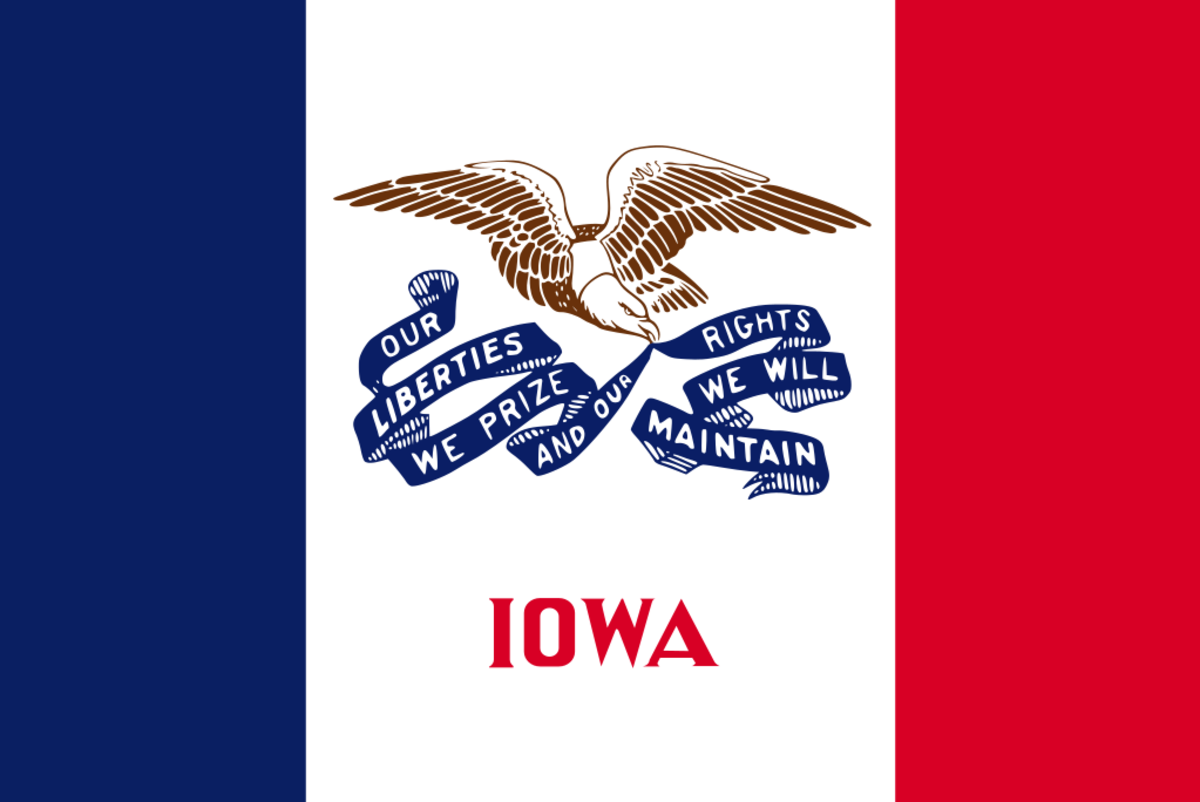Iowa Divorce Laws

Marriages in Iowa, on average, last longer than in other states. According to federal data, the state ranked fifth nationwide with the lengthiest marriages at 22 years.
However, divorces still happen. One of the common causes of marriage dissolution in Iowa is substance abuse. The state ranks second in the country for excessive drinking. Another reason for divorce in Iowa is due to domestic violence. There are also around 28% of men and 35% of women in the state who experience sexual abuse, stalking, or violence from their partners.
Because of these troubling statistics, it is crucial to understand how divorce works in Iowa. This article gives an overview of the state’s no-fault system and how it applies in property division cases. It also provides the steps one has to take to end their marriage. Additionally, the article lists the resources one may access to recover from the financial as well as emotional toll that divorce brings.
Is Iowa a No-Fault State When It Comes to Divorce?
In a no-fault state like Iowa, couples do not need to cite a reason for marriage dissolution. The Hawkeye State is one of 17 places considered a true no-fault state. In other words, both parties may allege that their marriage has broken down to the point where it can no longer be preserved to obtain a divorce.
No-fault divorces are comparatively straightforward than at-fault divorces. Unlike those in Iowa, in some states like South Dakota, residents can divorce their partners on various grounds, including adultery, chronic mental illness, or willful neglect.
How to File for Divorce in Iowa
The difficulty of starting the divorce process in Iowa depends on whether both parties see eye to eye on their marital issues. If they agree on all counts, the process is smooth and needs fewer requirements. However, if the couple disputes each issue, the time necessary to finalize their divorce is longer. Add in matters related to children, and the process increases in complexity.
Individuals can minimize stress while going through divorce by learning these requirements. A skilled attorney may assist those facing complex matters like child custody and property division.
Under Iowa law, the respondent, or the one being served divorce papers, does not face residency requirements. Meanwhile, the petitioner or the one filing for divorce must have been an Iowa resident for at least one year before initiating the marriage dissolution process.
1. Complete and submit required forms
There are standard forms one needs to start the divorce process in Iowa. These include:
Form 201. This document refers to the Petition for Dissolution of Marriage with Children.
Form 101. This document is the Petition for Dissolution of Marriage with no Minor or Dependent Adult Children. Note that this form is utilized if the respondent or petitioner is pregnant.
The forms differ depending on whether the divorcing couple has children. The petitioner must also file the relevant paperwork with the applicable district court. Note that generally, papers need to be submitted through the eFile system. Individuals may obtain a court exemption from the eFile process.
Other documents that should be submitted include Form 104 or 204, which is the Original Notice for Personal Service. Additionally, both parties divorcing without children need to file Form 124. This legal paper refers to the Financial Affidavit that displays their assets and liabilities. Form 224 is used if the divorcing parties have children.
Individuals in Iowa must pay $265 to file the petition. Courts allow payment deferrals to petitioners if the filing fee will cause them to suffer financially. They can submit an application through Form 109 or Form 209 if they have children.
2. Serve paperwork to the other party
The next step in the Iowa divorce process is serving the necessary paperwork to the other party. A copy of the Petition and the Original Notice must be given to the spouse. They need to receive their documents within 90 days of filing them with the applicable court. Individuals who do not serve the paperwork to their partner within the 90-day period face dismissal of their case.
One can serve the divorce papers personally to their spouse. In some cases, divorcing couples are not on good terms. As such, a party may request that a sheriff or a private process server deliver the paperwork. The costs for these differ. For instance, private process servers collect fees that range from $20 to $100. On the other hand, the Polk County Sheriff’s Office requires a $50 fee to deliver the original notice.
The respondent has 20 days to file an answer to the petitioner. They complete and submit Form 115 to show that they agree or disagree with the other party’s requests. Form 215 is used in divorces involving children.
3. Request for Temporary or Emergency Orders, if necessary
In cases involving children, a petitioner may submit Form 222 to request the court for temporary child support or custody. The parent must show in the document the reason for the request. Parties without children use Form 122.
In situations concerning domestic abuse, a party may file for an emergency order. This request can be granted if the court is closed during the weekend or at night. The order lasts for 72 hours.
4. Attend the required classes
Under state law, parties who dispute child visitation or custody must attend a court-approved course. The classes allow courts to sensitize and educate parents about their child’s needs. Iowa law requires them to participate in a course within 45 days of filing the petition.
One example of a court-approved class is Child in the Middle. Note that some courses are offered to participants from different counties. For instance, Kids First primarily works with children who reside in Linn and Johnson counties. Another example is the Iowa Center for Children’s Justice. It provides classes for parents from Dallas and Polk counties.
5. Undergo Evaluations and Mediations, if necessary
Another way divorcing parties with children lengthen the marriage dissolution process is through child custody evaluations. Courts can appoint professionals like Child and Family Reporters to assess both parties' parenting capabilities and home conditions. This assessment is done to determine the child’s best interests. The party in charge of court costs will pay the fees for the reporter's services. If they are indigent, the costs will transfer to the county.
Courts may also require both parties to undergo mediation. State law allows the involved parties to choose their mediator. If not, the courts can appoint one. These individuals are considered neutral third parties whose job is to help both parties come to an agreement. Note that an agreement is only enforceable once it receives approval from the court. Mediations can last from one hour to 20 hours.
State law requires both parties to bear the cost of mediation. The hourly rate ranges between $100 and $400.
6. Attend a Pre-Trial Conference, if necessary
The purpose of the pre-trial is for the court to identify the issues that will be contested in the trial. It also allows them to verify whether multiple documents have been filed. These include certificates from court-ordered classes and affidavits of financial status.
7. Request for Discovery, if necessary
Courts may set a period wherein both parties gather information from each other. Those that employ attorneys can authorize them to file requests for production or send interrogatories. In other words, they ask the opposing party for various documents relevant to the divorce case. These may include state tax reports, insurance policies, and pay stubs. If the other party withholds relevant information, the length of discovery increases. It might take between two months and one year for discovery to complete.
8. Finalize the Divorce process
There are three ways for divorces to conclude in Iowa:
By default. If the other party does not file an answer within 20 days from the receipt of the petition, then the petitioner may request that the court grant a divorce decree. To put it differently, if there is no word from respondents, the one filing for divorce can receive what they want from the court by default. An individual needs to file Form 127 to obtain a court decree for a divorce involving no children. Meanwhile, those with children must use Form 227.
By agreement. If both parties agree on all issues, they can file Form 228, a Settlement Agreement that shows how they decide on areas like child support and property division. The parties also need to submit a Form 229 or an Agreed Parenting Plan. Meanwhile, divorcing partners without children who agree to all marital issues must file Form 129.
By trial. The judge will ask both parties questions about their disagreements. Arrangements about child custody, support, and visitation, as well as property division, will be finalized.
How Property is Divided in an Iowa Divorce
Iowa follows an equitable distribution system in property division. Unlike in states that adhere to the community property system, courts in the Hawkeye State do not necessarily split marital assets in the middle. Iowa judges consider multiple factors to divide properties equitably. These include:
Marriage length.
Contribution of the spouse, especially if they are a homemaker.
Earning capacity of each partner.
Emotional and physical health.
Tax impact.
Property inherited or gifted is separate property. These are not subject to equitable distribution unless the court decides that the non-distribution is “inequitable,” or unfair, to ex-partners or children.
In some situations, judges assess different factors to determine who gets what. For instance, if the ownership of a pet is disputed, the party that spent more time with the animal might receive ownership of it. Other relevant factors include whether a spouse spent money on grooming expenses and vet bills for the pet.
Another situation where discussions over property division can lead to complications is if it involves farms and farm-related assets. Judges who make decisions over the distribution of farms may not possess an agricultural background. Since these properties depend on assets like livestock and machinery, distributing them may harm the farm’s operations.
It is crucial to obtain the services of a skilled attorney in these discussions. Knowing how divorce impacts agricultural families is essential in Iowa. It ranks third in the list of states with the highest number of farms in the country.
Iowa Divorce FAQs
Legal Resources for Getting a Divorce in Iowa
Starting the divorce process in Iowa can be difficult. There are a range of guidelines to follow, documents to complete, and deadlines to keep in mind. Fortunately for Iowa residents, multiple organizations in the state provide guidance through the marriage dissolution process. An individual can see below a list of groups offering assistance to manage their divorce-related issues.
211 Iowa
It is a comprehensive referral system that helps Iowans, like those undergoing the divorce process, reach governmental programs and health services. It has experience working with individuals in need of substance abuse intervention, financial assistance, and homemaker services. It has helped families, seniors, businesses, and members of the clergy. It counts the United Way of the Midlands and Central Iowa, as well as the Gundersen Health System, among the list of partners. An individual can expect assistance in multiple languages. To access 211 Iowa, one may download the app from the App Store or Google Play. One may also text their zip code to 898211 to chat with a 24/7 live operator.
Office of the Attorney General of Iowa
The office provides legal representation to a wide range of institutions, commissions, and departments in Iowa. It is the Hawkeye State’s chief legal officer. One of its services is the Crime Victim Compensation Program. Iowans hurt because of sexual assault or domestic abuse may receive reimbursement for costs such as medical expenses and lost wages. Note that the compensation one can obtain from the office is limited to $25,000 for medical bills, $5,000 for counseling bills and burial, as well as funeral expenses for $7,500. One may fill out a form online to apply. They can also call the office at 515-281-5044.
Iowa Department of Health and Human Services
The office provides programs that improve and protect the health of people throughout Iowa. The Child Support Services department helps families obtain the support they need for their children by locating parents, enforcing payment orders, and registering modification orders from other states. One may apply for child support services online. Note that the department requires information like Social Security numbers and birth dates, as well as divorce information. An individual can also find the nearest office to them through a webpage. Another way someone can get ahold of the department is through a call at 1-888-229-9223. The number is open 24/7.
Children & Families of Iowa
The organization provides multiple services and programs that help Iowans recover from trauma. It has experience assisting domestic violence victims and offering individual counseling, resource referrals, and support groups for parents and their children who reside in Warren and Polk counties. The organization also operates the largest domestic violence shelter in Iowa, located in Polk County. Those who need shelter because of domestic violence for the next 24 to 48 hours may call 515-243-6147. One may also email the organization through contactus@cfiowa.org or submit a form online to obtain information about services like Child-Parent psychotherapy and art therapy.
Able Up Iowa
The organization helps Iowans, like those undergoing divorce, become independent through financial assistance and counseling programs. It assists in reaching financial goals through coaches who guide them in various areas, including benefit planning and debt management. It also offers loans that support individuals looking to purchase education or employment equipment. The institution additionally provides a way for Iowans to obtain emotional support animals and assistive tools like wheelchairs, as well as hearing aids. One may contact the organization by phone at 515-292-2972. An individual can also complete and submit a form online.
Expertise.com StaffAuthor
Step into the world of Expertise.com, your go-to hub for credible insights. We don't take accuracy lightly around here. Our squad of expert reviewers, each a maestro in their field, has given the green light to every single article you'll find. From rigorous fact-checking to meticulous evaluations of service providers, we've got it all covered. So feel free to dive in and explore. The information you'll uncover has been stamped with the seal of approval by our top-notch experts.




